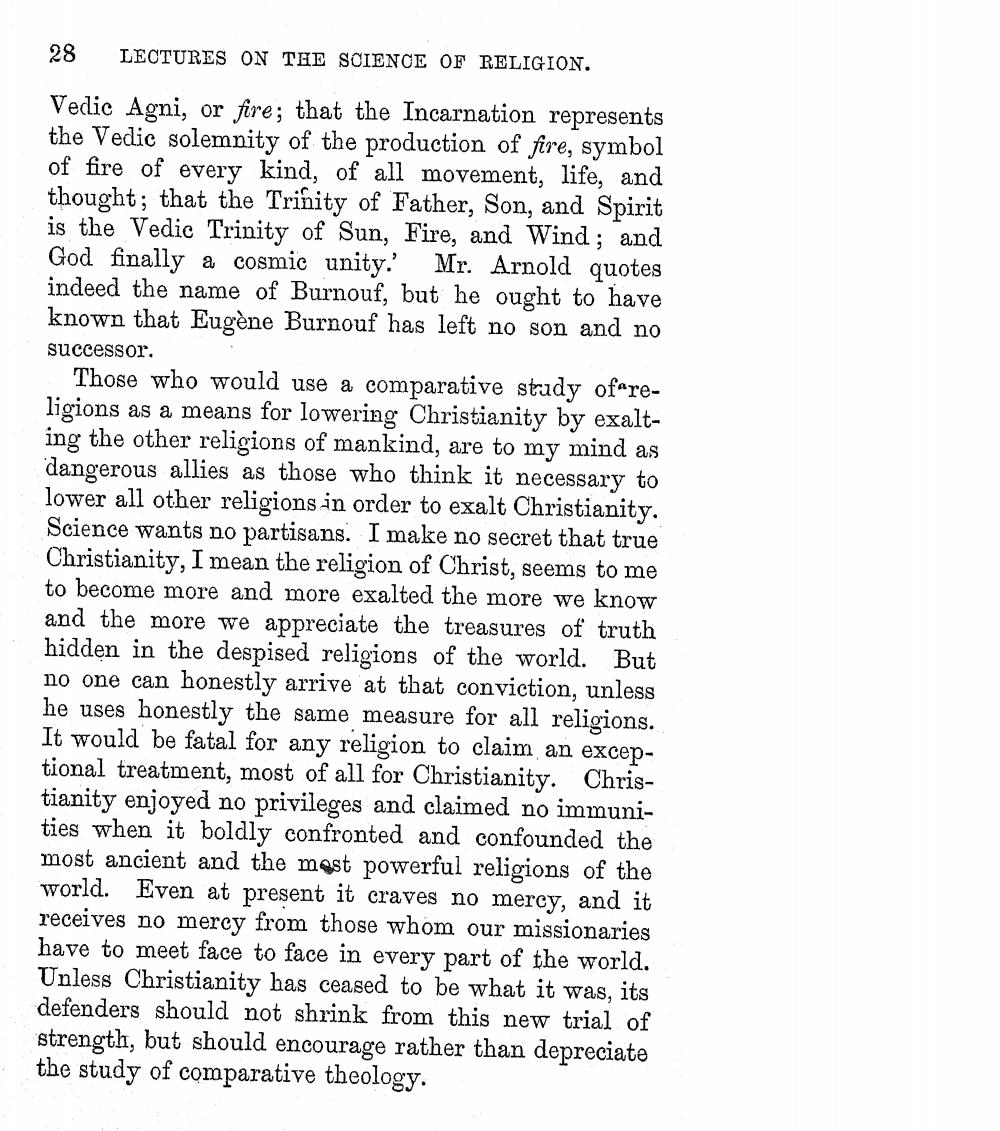________________
28 LECTURES ON THE SCIENCE OF RELIGION. Vedic Agni, or fire; that the Incarnation represents the Vedic solemnity of the production of fire, symbol of fire of every kind, of all movement, life, and thought; that the Trinity of Father, Son, and Spirit is the Vedic Trinity of Sun, Fire, and Wind; and God finally a cosmic unity. Mr. Arnold quotes indeed the name of Burnouf, but he ought to have known that Eugène Burnouf has left no son and no successor.
Those who would use a comparative study of religions as a means for lowering Christianity by exalting the other religions of mankind, are to my mind as dangerous allies as those who think it necessary to lower all other religions in order to exalt Christianity. Science wants no partisans. I make no secret that true Christianity, I mean the religion of Christ, seems to me to become more and more exalted the more we know and the more we appreciate the treasures of truth hidden in the despised religions of the world. But no one can honestly arrive at that conviction, unless he uses honestly the same measure for all religions. It would be fatal for any religion to claim an exceptional treatment, most of all for Christianity. Christianity enjoyed no privileges and claimed no immunities when it boldly confronted and confounded the most ancient and the most powerful religions of the world. Even at present it craves no mercy, and it receives no mercy from those whom our missionaries have to meet face to face in every part of the world. Unless Christianity has ceased to be what it was, its defenders should not shrink from this new trial of strength, but should encourage rather than depreciate the study of comparative theology.




